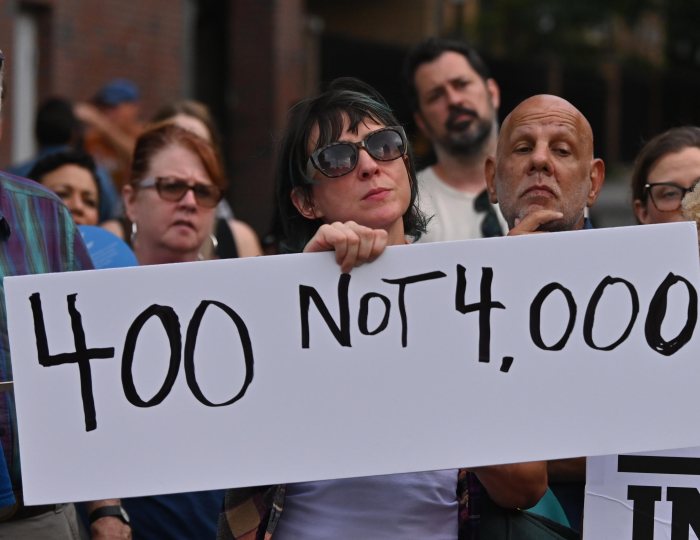The Brooklyn District Attorney’s Virtual Currency Unit has successfully dismantled and disrupted an online “pig butchering” operation that defrauded people across the country of millions of dollars.
Pig butchering is a virtual scam practice of luring individuals online and gaining their trust through conversation before convincing them to invest through apps and website domains in fraudulent cryptocurrency schemes. Victims of the crime are enticed by the subsequent huge financial returns in their investments, but when they try to withdraw the money are blocked from their accounts, losing out entirely.
The bust was announced on Thursday by District Attorney Eric Gonzalez.
“Pig butchering is a growing type of scam that defrauds residents of Brooklyn and the entire country out of billions of dollars every year,” he said. “My office’s strategy is to disrupt these schemes by seizing and shutting down their online infrastructure, and to educate the public about ways to avoid becoming a victim.”
The Virtual Currency Unit was established by the district attorney’s office in the fall of 2023 after hearing numerous complaints from Brooklynites who had fallen victim to the scams.
One such case involved a 51-year-old woman who reported to police in March of 2023 that she had been defrauded and lost $22,680 after downloading an app from the website coinformant.com.
She had been initially added to a chat group which discussed cryptocurrency and investments. Individuals in the chat convinced her to go to the website and download the app, on which she subsequently made eight deposits — seeing her profits rise to an astounding total of $387,495 in a brief period of time.
When she tried to withdraw the money, she was told she had to pay taxes. Upon complaining to the original group chat that had lured her into the scheme, she was blocked and her money was stolen.
According to the district attorney’s office, the subsequent investigation into the woman’s complaint revealed that her unwittingly fraudulent investment was moved through multiple online crypto domains consistent with money laundering.
Continued investigation revealed several additional cases of individuals who had fallen victim to the same coinformant.com scam from across the country, through a network of approximately 80 different web domains linked to the fraudulent scheme. In total, victims identified in this case lost a combined $1,063,846.
In response to this widespread online crime, the district attorney’s office seized the coinformant.com domain and 20 other associated urls, as well as three virtual servers which were hosting the domains.

Both Russian and Chinese communities in Brooklyn seem to have been particularly targeted by pig butchering scams, reportedly through random text message invitations to invest in cryptocurrency and through social media campaigns.
According to the district attorney’s office, complaints across the borough have amounted to about $4 million in total losses.
Gonzalez’s office has alerted Brooklynites to stay wary of online crypto scams. Some warning signs include receiving a “wrong message” from an unknown individual who attempts to initiate a friendship talking about how much money they have made from crypto investments, being added to a WhatsApp or Telegram group offering investment advice and playing it safe by avoiding any stranger who offers unsolicited financial advice online.
“Awareness and education are the first and best lines of defense against these prolific scams,” Gonzalez said. “Investment returns that seem too good to be true are almost always just that – fake. So, I urge everyone to be very skeptical of anyone who they haven’t met in person and who offers a lucrative investment opportunity in cryptocurrency.”
To authenticate whether or not a cryptocurrency exchange or investor is licensed to operate in New York State, visit the NYS Department of Financial Services website here or call the department at 800-342-3736.























